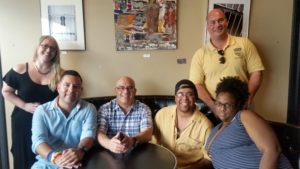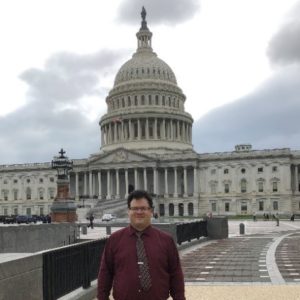The Arc and University of Minnesota Release Compelling Data on the Need for Paid Leave for Disability Community in the US
Today, The Arc and the Research and Training Center on Community Living at the University of Minnesota released two new data briefs looking at the work experiences and outcomes of families of people with intellectual and developmental disabilities (I/DD) and the need for paid leave policies. One brief focuses on the experiences of parents raising children with I/DD, while a second brief focuses on the experiences of family caregivers of adults with I/DD.
These data briefs examine subsamples of data from the Family & Individual Needs for Disability Supports (FINDS) Community Report 2017. The intent of this one-of-a-kind survey conducted by The University of Minnesota’s Research and Training Center on Community Living, in collaboration with The Arc, is to understand the experiences of families who provide supports to a family member with I/DD.
The FINDS Survey revealed that, despite the progress that many states have made to increase availability of resources and public funding to provide supports for caregivers and individuals with disabilities, many critical challenges remain. The two new data briefs delve into family members’ employment outcomes and the importance of paid leave as a benefit for family caregivers. The data briefs revealed that:
• Parents raising children with I/DD and working family members who provide support to adults with I/DD report significant challenges balancing work and caregiving and commonly experience negative employment outcomes.
• Caregivers face major gaps in employer supports. Less than half of working family members reported that they were able to take paid time off to care for their family member with I/DD (42% of parents of minor children, 40% of family members of adults).
• A substantial majority (86% of parents of minor children, 85% of family members of adults) thought that offering partially paid leaves of absence from work to meet caregiving responsibilities would be helpful or very helpful.
“The need for paid family and medical leave is universal. Nearly all of us will need paid leave at some point – to care for a family member’s or our own serious medical condition, or to welcome a new child into a family. Often missing from the national conversation is the disability angle. One in five Americans live with a disability. Yet the reality is, in the U.S. workforce, only 1 in 7 workers has access to paid family leave to care for a family member with a serious health condition. Roughly 2 in 5 workers report they lack access to any paid leave.
“This report paints a picture of the day-to-day needs of caregivers and should ignite action by employers, legislators, and advocates to work together to address the gap in support for employees who require paid leave to support their loved one with a disability. This data brief highlights the importance of paid leave for caregivers in our nation and our hope is that by sharing it we will raise awareness around this issue of national importance,” said Peter Berns, CEO of The Arc.
In tandem with the release of these data briefs, The Arc is releasing a new video which shares the personal story of a family that benefited from unpaid family leave. In the first year of his life, Josh had 10 surgeries and many Pediatric Intensive Care Unit (PICU) hospitalizations for respiratory and shunt infections. His parents, Victor and Debbi, did their best to juggle their professional obligations with raising their two older children and Victor’s duties in the U.S. Marine Corps Reserve, all while navigating Josh’s complex medical needs and disabilities.
The Family and Medical Leave Act (FMLA) provided salvation for Josh and his family. With the pressures at work mounting, and the need to focus on Josh’s day to day care, FMLA was their family’s last recourse to getting the time they needed to support Josh. Debbie was able to take unpaid leave while protecting her job and health insurance benefits. Most importantly, she was able to spend time with Josh during his time of need. While the FMLA was invaluable, Debbie discusses how paid leave would have helped even more. She invites others to join her in advocating for paid leave.
About the FINDS Survey
The FINDS survey was implemented primarily using an on-line survey between January and March of 2017. The survey was also made available in English and Spanish paper versions. Caregivers who were family members or friends of people with I/DD and who provided support were invited to participate in this survey. Direct support professionals or other caregivers whose primary relationship with individuals with I/DD was in a paid role were not included in the sample.
More than 3,000 people (3,398) met the criteria to be included in the survey and consented to partici¬pate. Caregivers surveyed included respondents from all 50 states, DC, Puerto Rico, and Guam. The number of people responding was large and provides important information about the experiences and outcomes of family caregivers of individuals with I/DD in the United States. However, the sample is not reflective of the racial and economic diversity of the United States.



 During August Recess, Members of Congress return to their home states to meet with their constituents. It’s the perfect time for advocates to meet with legislators and tell them #HandsOff important programs – like
During August Recess, Members of Congress return to their home states to meet with their constituents. It’s the perfect time for advocates to meet with legislators and tell them #HandsOff important programs – like 





